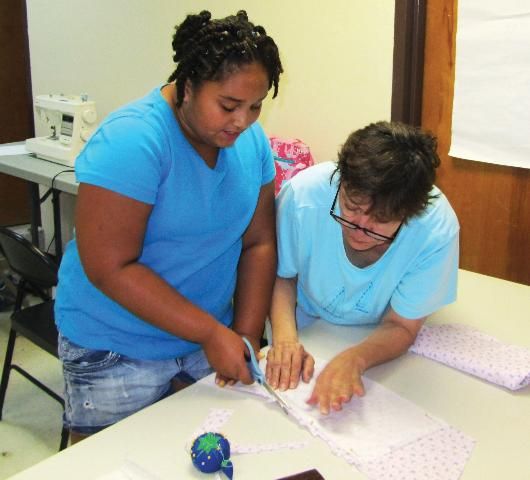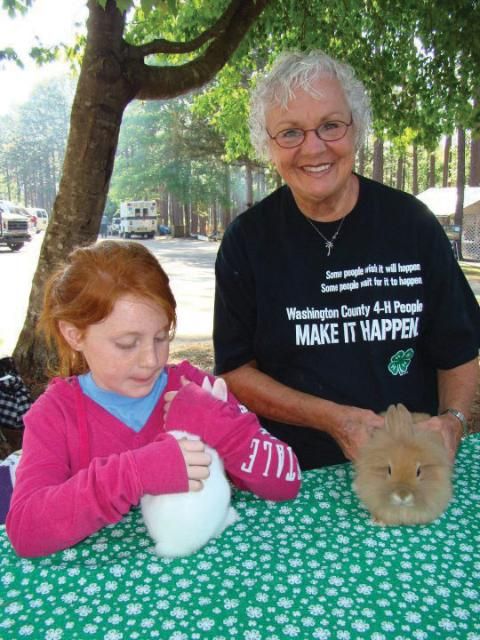
The UF/IFAS Extension 4-H Youth Development Program is committed to the safety and well-being of its youth as well as the volunteers who help deliver 4-H programs under the supervision of 4-H faculty and staff. All things in life involve some sort of risk. This is especially true when working with youth, but there are many ways that volunteers can minimize this risk and lead safe 4-H activities. Proper planning and common sense certainly go a long way. Although not to be considered legal advice, here are some facts and issues to know and keep in mind while serving as a 4-H volunteer:
-
Due to their service as volunteers for the University of Florida, volunteers performing authorized and approved 4-H volunteer responsibilities (as appointed by UF/IFAS Extension faculty/staff) are eligible for workers' compensation and state liability protection under the same conditions as state employees.
-
Like most organizations, 4-H has rules and policies that must be followed. 4-H Policies & Best Practices are posted at http://florida4h.org/policies. 4-H has policies related to code of conduct, membership and participation, non-discrimination, handling funds, use of 4-H name and emblem, religious neutrality, transportation, websites and social media, and more.
-
It is important to treat all 4-H participants fairly and to apply policies and rules consistently for all. As part of a public institution, 4-H Youth Development has clear expectations regarding prevention of discrimination (posted at http://florida4h.org/policies). The University of Florida is an Equal Opportunity Institution and 4-H values diversity and inclusiveness.
-
To protect youth and adults involved in UF/IFAS programs, UF/IFAS has established mandatory volunteer background screening and youth registration procedures to meet requirements of the State of Florida via the Department of Children and Families (DCF); and the University of Florida's Office of Youth Conference Services (OYCS). The policy and procedures are posted at http://florida4h.org/policies.
-
Adequate and proper supervision can go a long way to help prevent or greatly reduce injuries and/or property damage. A Latin term commonly used regarding proper care is in parentis locus. Translated, it means "in the place of a parent." In other words, when you are entrusted with the care of someone else's children, you should do everything a good parent would do with his or her own child, in accordance with 4-H training, under the same circumstances. The best way to accomplish this is to provide proper and adequate supervision for all children, based on their ages and experience. Consider the question, "What would I want another person who is caring for my child to do?" Consider safety first!
-
The Florida 4-H Participation Form for Youth and Adults is part of the 4-H enrollment process in 4HOnline (http://florida.4honline.com) and serves as a parent-release form for minors. Such consent ensures that parents have given permission for their children to participate in a 4-H activity, and that they are aware of the inherent risks in participating. It consists of the Health Form and Medical Release, Code of Conduct, General Release, Transportation Policy, Publicity Release, and Survey and Evaluation Release. Although paper enrollment forms are still available (at http://florida4h.org), parents/guardians should be directed to enter youth enrollment information, including the Participation Form, into 4HOnline. A Health Form is mandatory for all participants in overnight programs, including adults. Health Forms should be carried by all 4-H'ers traveling to and from out-of-county 4-H events. The Health Form is also often required as part of a pre-event registration packet for state and national events. If health conditions or emergency contacts change, it is important to update the information.
-
Realize that, when using your personal motor vehicle for transportation related to a 4-H function, your policy with your auto insurance company will dictate the liability protection you have in the case of a motor vehicle accident. 4-H transportation policy is posted at http://florida4h.org/policies and included in the 4-H Participation Form.
-
Accidents will happen. This is why many county 4-H programs (usually sponsored by their county 4-H organizations) provide basic accident insurance coverage for all officially registered 4-H members and leaders. This policy generally covers injuries incurred during any 4-H activity. Check with your county 4-H staff to see if your county provides any accident insurance. If not, information may be available on where to get inexpensive coverage if your club wants its members to participate in such a program.
-
Inform your county 4-H staff immediately regarding any situation involving an injury (or other controversial incident) as part of a 4-H activity. Promptly write down all of the facts of the situation, to account for what happened and how.
-
Make safety and fairness priorities in everything you do in 4-H. An ounce of prevention truly is worth a pound of cure! When in doubt about a new activity or club rule, confer with your county 4-H staff first. With this in mind, here are some examples of Do's and Don't's:
Don't: Leave members unattended in a meeting room.
Do: Properly supervise youth at all times during 4-H functions. If necessary, ask another qualified 4-H volunteer to take over.
Don't: Reprimand a 4-H member for not following an established club rule and then ignore another member's violation of the same rule.
Do: Treat all 4-H members fairly and apply the rules consistently. Remind all members of the importance of following established 4-H rules and the consequences for not doing so. Enforce the rules consistently.
Don't: Allow a member of a food and nutrition project to cook food in a metal container using a microwave oven.
Do: Use approved 4-H curriculum and proven safe practices. Help reduce risk of injury to 4-H members by educating them on the possible dangers of activities and providing necessary training and supervision.
Don't: Allow members in a science project to mix unknown or dangerous chemicals to see what will happen.
Do: Limit 4-H functions to 4-H activities. Activities that are separate are considered non-4-H and are not part of "authorized and approved 4-H volunteer responsibilities."
Don't: Ask youth to perform tasks for you that are unrelated to 4-H.
Do: Understand the abilities of 4-H youth and avoid putting them in situations without proper training or supervision.
